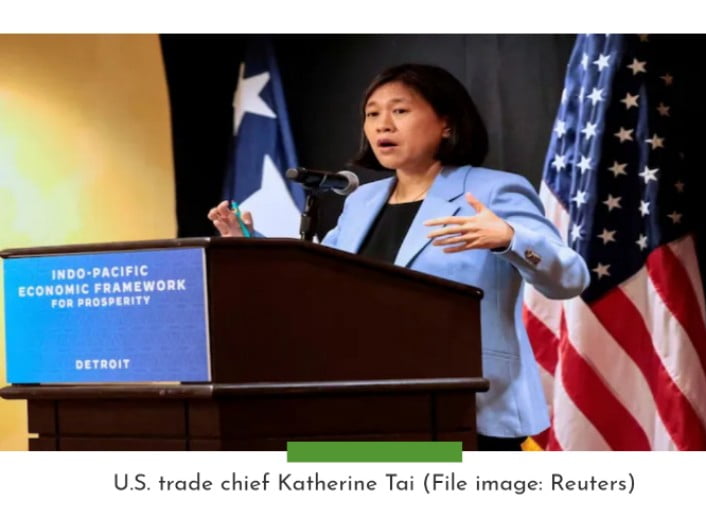The recently announced licensing regime by India, set to take effect from November 1, has elicited apprehensions from U.S. trade chief Katherine Tai. This regime, ostensibly aimed at ushering in “trusted hardware and systems” into the nation, has triggered concerns over its potential impact on the import of laptops, tablets, and personal computers.
The specter of this licensing decree casting a shadow over shipments from prominent entities such as Apple and Dell looms large. Furthermore, it has raised the specter of necessitating enterprises to augment local manufacturing endeavors.
In a bid to safeguard the interests of stakeholders, Tai’s proactive intervention has come to the forefront. She underscored the necessity for pertinent parties to be accorded an opportunity to scrutinize and offer input to ensure that the impending policy, if enacted, doesn’t exert deleterious repercussions on U.S. exports to India.
These concerns and dialogues materialized following a rendezvous between Tai and India’s Trade Minister Piyush Goyal on August 26, during her sojourn to India to partake in the G20 trade ministers’ assembly in Rajasthan.
The overarching preoccupation persists in assessing how the licensing stipulations will influence the dynamics of international trade and commerce, particularly within the technology sector.







